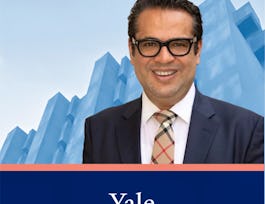This course is open to professionals interested in learning more about leadership in higher education for a changing demographic or interested in developing their own leadership skills. The very idea that individuals can be taught to lead is not without its skeptics. Reasonable people, even some scholars in the field, point to the important traits, skills, and attributes that are observed in many visible leaders and contend that certain qualities necessary for effective leadership are not easily transmitted. To accept this premise and conclude that some people are born as natural leaders and others cannot be expected to lead at all is to make a mistake at the other end of the logical spectrum. We believe that leadership can be taught as long as it is concurrently nurtured, that most people possess a constellation of strengths around which they can construct their own leadership philosophy and approach, and that leadership development programming—if done well—can be transformative for organizers and participants.


Leading for Equity, Diversity and Inclusion in Higher Education
Taught in English
Some content may not be translated
22,936 already enrolled
(280 reviews)
What you'll learn
Understand the historical narrative of institutions as well as structures that have created instances of inclusion and exclusion in universities.
Describe how transformational leadership is enacted for diversity, equity, and inclusion in a complex and contested environment.
Analyze the strategic diversity planning process and documents of a selected institution.
Skills you'll gain
Details to know

Add to your LinkedIn profile
5 quizzes
See how employees at top companies are mastering in-demand skills


Earn a career certificate
Add this credential to your LinkedIn profile, resume, or CV
Share it on social media and in your performance review

There are 5 modules in this course
The system of higher education has grown from a complex history and evolving mission to serve the public good. Higher education leaders and administrators should reflect upon and consider this history and its implications for equity, diversity, and inclusion efforts on campus. This module will help you to recognize historical narratives and present day consequences on campus, from the way students are admitted to the buildings on campus.
What's included
10 videos3 readings2 quizzes2 discussion prompts
Higher education institutions have been shaped through a history of exclusion. Historically Black Colleges and Universities (HBCUs), Women's Colleges, and Hispanic-Serving Institutions (HSIs) are a few examples of these institutions. This module will help you to understand the various structures, schools, and organizations that have developed as a result of historical exclusion and the role each plays in equity, diversity, and inclusion on campuses across the United States.
What's included
4 videos6 readings1 quiz1 discussion prompt
Social discourse is intertwined with modern issues faced by students on campus. Student movements develop in response to contested discourse and seek to change not only tensions on campus, but address social inequities as well. This module will provide background on contested discourse as well as highlight several student movements addressing contemporary campus issues.
What's included
1 video9 readings1 quiz1 discussion prompt
What's included
4 videos4 readings1 peer review
What's included
4 videos7 readings1 quiz1 discussion prompt
Instructor

Offered by
Recommended if you're interested in Personal Development

Yale University

University of Glasgow

Columbia University
Why people choose Coursera for their career




Learner reviews
Showing 3 of 280
280 reviews
- 5 stars
73.92%
- 4 stars
21.07%
- 3 stars
2.85%
- 2 stars
0%
- 1 star
2.14%
New to Personal Development? Start here.

Open new doors with Coursera Plus
Unlimited access to 7,000+ world-class courses, hands-on projects, and job-ready certificate programs - all included in your subscription
Advance your career with an online degree
Earn a degree from world-class universities - 100% online
Join over 3,400 global companies that choose Coursera for Business
Upskill your employees to excel in the digital economy
Frequently asked questions
Access to lectures and assignments depends on your type of enrollment. If you take a course in audit mode, you will be able to see most course materials for free. To access graded assignments and to earn a Certificate, you will need to purchase the Certificate experience, during or after your audit. If you don't see the audit option:
The course may not offer an audit option. You can try a Free Trial instead, or apply for Financial Aid.
The course may offer 'Full Course, No Certificate' instead. This option lets you see all course materials, submit required assessments, and get a final grade. This also means that you will not be able to purchase a Certificate experience.
When you purchase a Certificate you get access to all course materials, including graded assignments. Upon completing the course, your electronic Certificate will be added to your Accomplishments page - from there, you can print your Certificate or add it to your LinkedIn profile. If you only want to read and view the course content, you can audit the course for free.
You will be eligible for a full refund until two weeks after your payment date, or (for courses that have just launched) until two weeks after the first session of the course begins, whichever is later. You cannot receive a refund once you’ve earned a Course Certificate, even if you complete the course within the two-week refund period. See our full refund policy.



